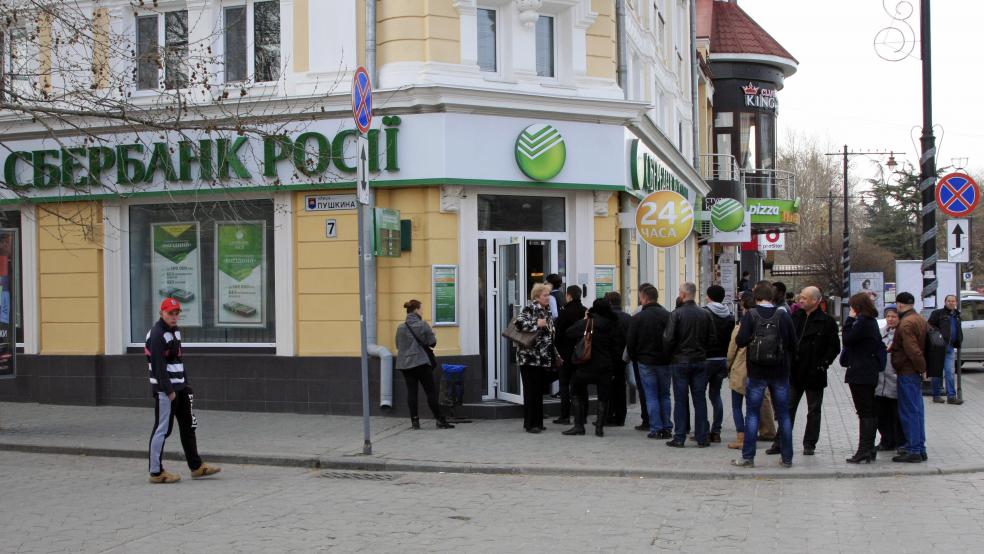Russia’s leaders have continued to criticize the economic sanctions imposed by the West over their invasion of Ukraine, but the official complaints from Foreign Minister Sergei Lavrov have recently taken a more-in-sorrow-than-in-anger tone. The sanctions, Lavrov and others suggest, won’t really hurt the Russian economy in the long term, but are damaging to international cooperation in general.
For now, though, an increasingly harsh sanctions regime and the declining value of the ruble and have begun to have noticeable effects on the economy.
Growth in Russia has come to a virtual standstill, as foreign investors pull money out of the country and those who have been considering new investments reconsider. Global oil prices are moving sharply downward, presenting a major challenge to a Russian economy that is utterly dependent on oil and gas exports. As the value of the ruble plunged last week, the Russian central bank spent more than $200 million in an unsuccessful attempt to prop it up. Russia’s inflation rate rose to 8.3 percent in mid-October, driven largely by increasing food prices, driving concern that the central bank will need to raise interest rates in order to slow price increases.
Related: A Radical Way for Ukraine to Fight and Defeat Russia
Those recent developments have international investors looking even more askance at Russia then they have been since the invasion of Ukraine over the summer. The bond rating firm Moody’s last Friday cut Russia’s sovereign debt rating to Baa2, with a negative outlook. That means Moody’s views bonds issued by the Russian government as riskier than those issued by Kazakhstan, Mauritius, and Bulgaria.
“The military confrontation in Ukraine and escalating sanctions against Russia are likely to have an increasingly negative macroeconomic impact on Russia's investment climate," Moody’s said in a statement.
The ratings change means that it is getting increasingly expensive for Russia to borrow money, even as its need for financing grows and the list of institutions willing or able to do business with it shrinks.
In an interview with Bloomberg Television on Wednesday, Will Pomeranz, the deputy director of the Woodrow Wilson Center’s Kennan Institute, said, “Russia has fewer revenues and the sanctions mean it cannot turn to western financing to make up the shortfalls. Russia has to look internally to make up the shortfalls, or to other potential bankers, most likely in China. I don’t think Russia necessarily wants to be heavily indebted to China.”
Related: Ruble’s Nosedive Shows Power of Russian Sanctions
Russian President Vladimir Putin, meanwhile, has managed to stay wildly popular among the Russian people. How long he can maintain his high approval ratings is not at all clear.
Top Reads from The Fiscal Times:





